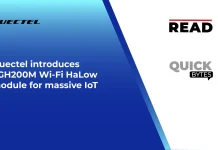Ascletis Pharma Inc. announces the completion of first patient dosing in the U.S. Phase I clinical trial of ASC61, an oral PD-L1 small molecule inhibitor prodrug, for treatment of advanced solid tumors.
This U.S. Phase I trial is a dose-escalation study to evaluate the safety and tolerability of ASC61 as well as to define the maximum tolerated dose (MTD) and recommended Phase 2 dose (RP2D) of ASC61 in patients with advanced solid tumors who have disease progression during or following standard therapy.
ASC61 is an oral small molecule inhibitor prodrug. Its active metabolite, ASC61-A, is a potent and highly selective inhibitor which blocks PD-1/PD-L1 interaction through inducing PD-L1 dimerization and internalization. As a single agent, ASC61 demonstrated significant antitumor efficacy in multiple animal models including humanized mouse model. Preclinical studies showed that ASC61 has good safety and pharmacokinetic profiles in animal models. ASC61 oral tablets used in the clinical trial, were developed with the in-house proprietary technology of Ascletis.
In a head-to-head comparison study using the human PD-L1 expressing cells and fresh peripheral blood mononuclear cells (PBMCs) co-culture assay, ASC61-A treatment induced secretion of IFNγ in a concentration dependent manner, with an EC50 of 2.86 nM. Maximal levels of IFNγ induced by ASC61-A were similar to that induced by Keytruda.
Also Read: Viome Life Sciences Unveils CancerDetect, the Future of Oral and Throat Cancer Detection
Compared with PD-1/PD-L1 antibody injections, the oral PD-L1 inhibitor ASC61 has the following benefits: (1) higher patient compliance with easy and safe administration with no need of hospital visits for injections; (2) ease of all oral combination therapies with other oral anti-tumor drugs; (3) easier to manage immune-related adverse effects (irAEs) with dose adjustment; (4) relatively lower cost; and (5) higher permeability to distribute into targeted tissues.
“Immunogenicity and the poor permeability of tumor tissues are the major disadvantages of therapeutic antibodies, which can cause a low response rate of PD-1/PD-L1 antibodies. As a highly differentiated small molecule PD-L1 inhibitor, ASC61 has several advantages over antibodies, and showed promising preliminary efficacy and safety profile in preclinical studies. This progress of ASC61 on advanced solid tumors further demonstrated Ascletis’ global R&D capability and execution. We expect to further advance the studies on ASC61 to provide more options for patients with advanced solid tumors.” said Dr. Jinzi J. Wu, Founder, Chairman and CEO of Ascletis.






